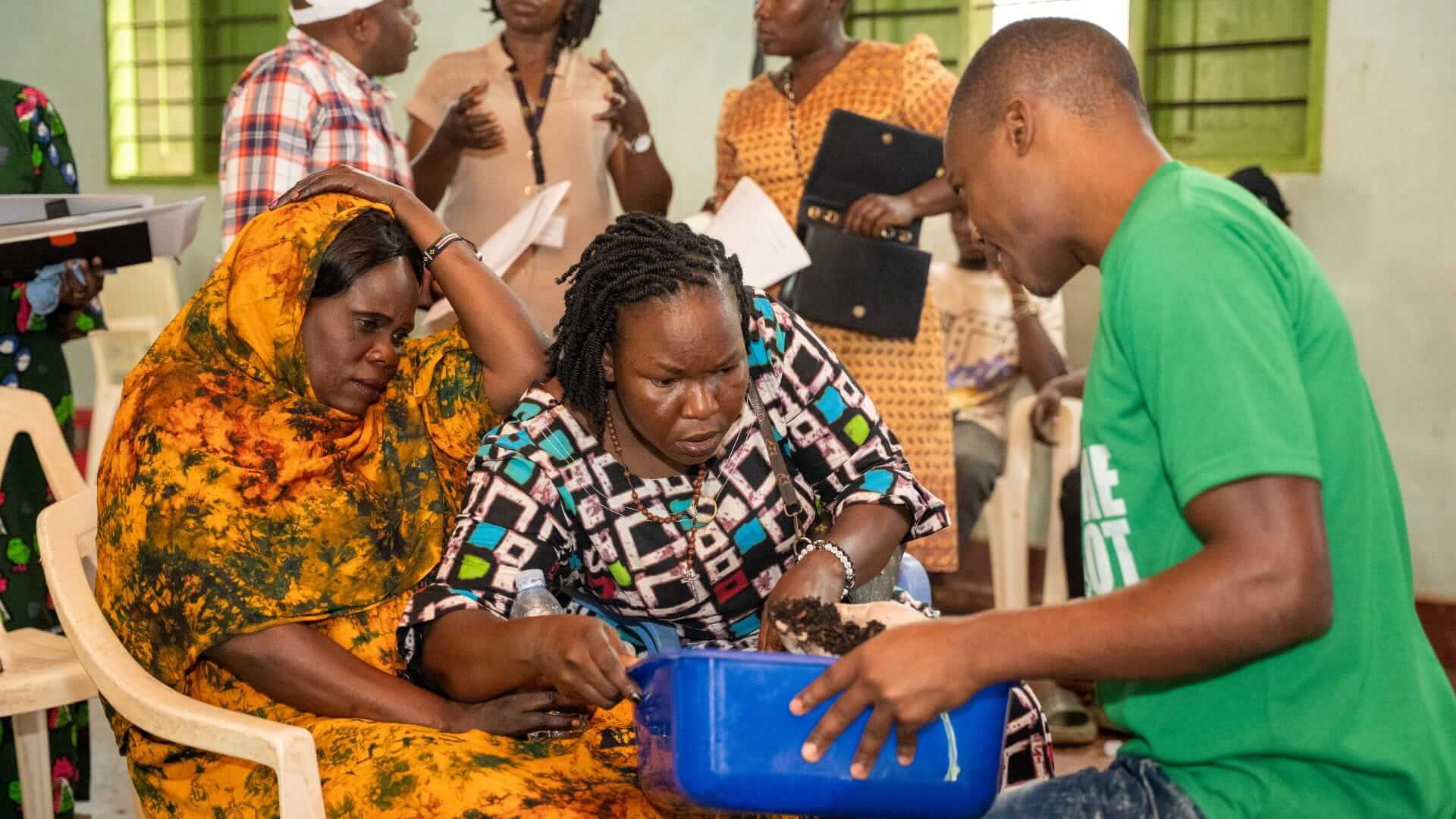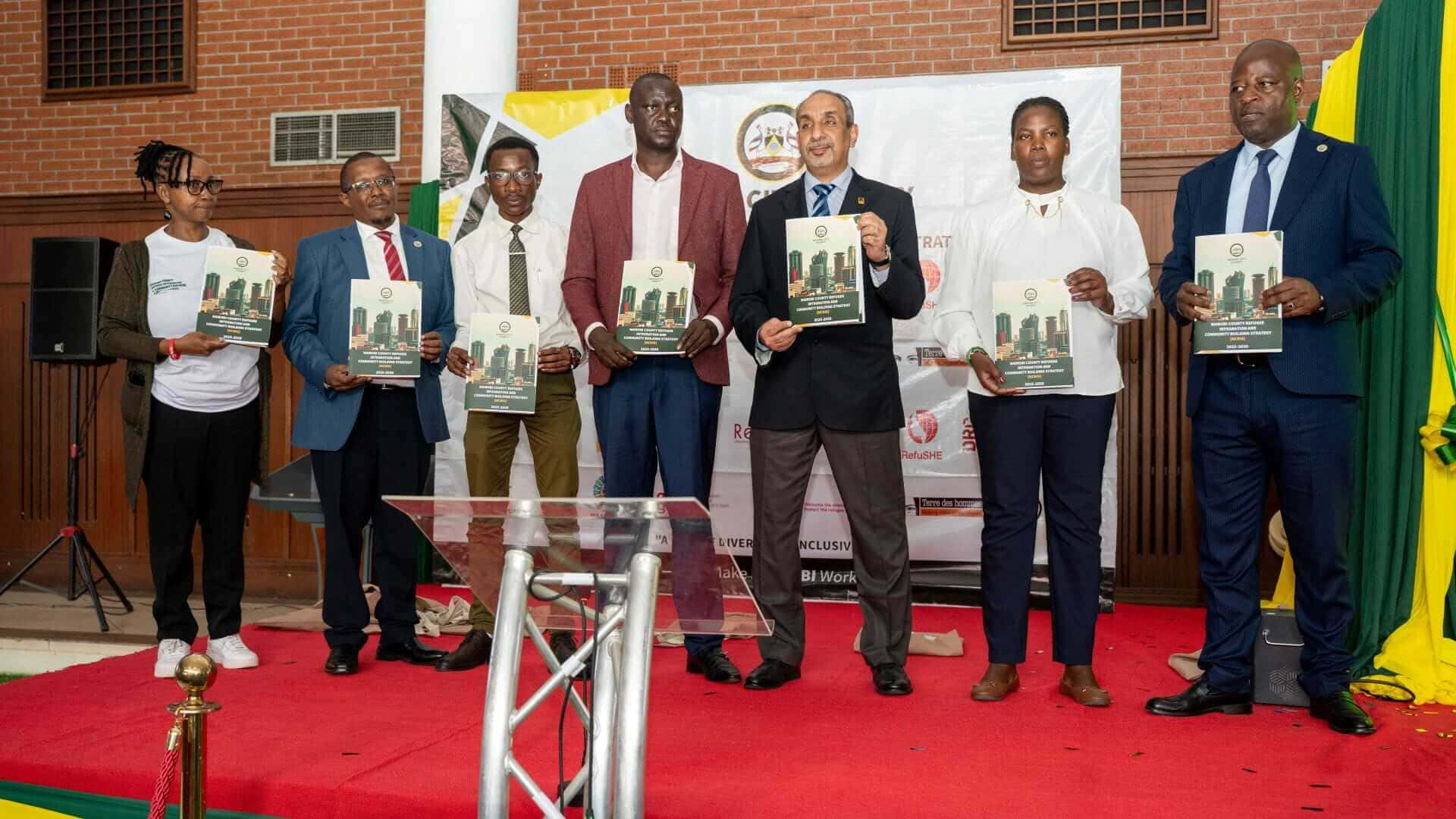A call for decent work opportunities for refugees living in Nairobi and Kampala
A call for decent work opportunities for refugees living in Nairobi and Kampala
A call for decent work opportunities for refugees living in Nairobi and Kampala

In the bustling cities of Nairobi and Kampala, 175,000 refugees are striving to sustain themselves and their families after fleeing turmoil in their home countries like South Sudan, DRC, and Somalia. However, their journey is far from easy, with numerous challenges hampering their pursuit of meaningful and dignified employment. A new policy brief by Re:BUiLD, an urban refugee program being implemented by the International Rescue Committee and its partners in Kenya and Uganda, sheds light on the struggles refugees face in accessing employment. It outlines a roadmap for change, calling upon governments, NGOs, and the private sector to reassess their policies and perceptions regarding refugees.
Challenges urban refugees face in accessing employment
Refugees in urban areas like Nairobi and Kampala, unlike those in settlements, are expected to be self-reliant. However, they grapple with multiple challenges including non-recognition of their qualifications, delays in processing documentation, language barriers, and a lack of essential skills training, and social networks that could facilitate their access to employment. The pursuit of decent work is further complicated by inadequate awareness among refugees and potential employers about refugees' rights, employment opportunities, and forms of social protection available. The collective impact of these barriers often pushes refugees into informal sectors, where they remain unprotected and undercompensated, amplifying their vulnerabilities.
This calls for a dialogue on changing the way society perceives refugees, shifting from viewing them as burdens to acknowledging them as contributing members of society, capable of driving innovation and economic productivity in host economies.
Role of Governments, NGO’s and the private sector in unlocking opportunities
To transform the existing paradigm, the policy brief outlines actionable recommendations targeting governments, NGOs, and the private sector. Streamlining and expediting processes for providing refugee IDs, work permits and reinforcing policies that ensure equal rights and protections for refugees in the workplace are pivotal in unlocking employment opportunities for refugees in the two cities.
Moreover, NGOs bear the responsibility of elevating awareness regarding refugees’ rights and contributions and empowering them with knowledge on their rights and available employment avenues. The private sector should embrace equitable and decent work opportunities for refugees, supporting them in documentation processes and offering on-the-job training and apprenticeship opportunities.
The concerted efforts of all stakeholders can create a conducive environment for refugees, enabling them to transcend their challenges and contribute significantly to the host economies. These initiatives are not just about altering policies; they are about transforming lives and societal outlooks, about inclusivity and resilience, and about envisioning a world where everyone has the right to decent work and a dignified life.
Refugees, when given the opportunity, can be architects of innovation and progress. It's high time we shift our perspectives, and address the impediments in their path. The policy brief is not merely a document, it serves as a catalyst for change and a beacon of hope for thousands of people striving for a life of dignity and fulfillment in Nairobi and Kampala.
Priscilla Dembetembe, Re:BUiLD Program Director, International Rescue Committee.
Priscilla.Dembetembe@rescue.org

